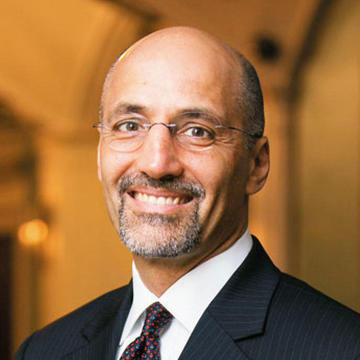Who’ll stand for democracy?
As the U.S. and China hurtle toward conflict, the next president must stand for our most enduring value
Read the full article at Democracy: A Journal of Ideas
As America moves from Independence Day to Election Day, we are on the verge of a new Cold War with Communist China. That conflict is taking place in the shadow of a raging global pandemic and a steep economic downturn.
The next president will have to chart a course for this deepening rivalry, which will mean deciding whether democracy is a priority, and if so, what that means.
[A]s Trump and Joe Biden prepare to face off, they provide contrasting views of how much value we should place on democracy in our rivalry with China.
The importance placed on democracy by the United States in its relationship with China has waxed and waned since the Communist Party took power in 1949. Donald Trump’s battles with China largely have avoided democracy concerns. Instead, he has focused on economics and trade, and most recently on the coronavirus pandemic—or, for Trump, “the China virus” and the “Kung Flu.”
Now, as Trump and Joe Biden prepare to face off, they provide contrasting views of how much value we should place on democracy in our rivalry with China. Three issues stand out.
First, and most urgent, is the crisis in Hong Kong. Though Hong Kong was never a full-fledged democracy, its citizens and foreign investors have long enjoyed privacy, free expression, and due process protections. China’s new National Security Law for Hong Kong threatens those freedoms. Beijing-appointed authorities and secret tribunals will have wide discretion to determine guilt or innocence of anyone—citizens and foreigners—accused of subversion, secessionism, terrorism, and foreign interference. Beijing has responded to local protests with tear gas, water cannons, and arrests.
Joe Biden responded with a sweeping set of proposed sanctions, going beyond punishing direct actions against Hong Kong to include prohibiting American companies from “abetting repression and supporting the Chinese Communist Party’s surveillance state.”
The president has been silent, but will need to decide whether to approve sanctions, unanimously passed by Congress last week. A pro-democracy faction within his administration seems to support tough action. Secretary of State Mike Pompeo called the new National Security Law “outrageous and an affront to all nations.” He is likely to have an ally in White House Deputy National Security Advisor Matt Pottinger, the president’s top China aide, who valorized China’s “civic-minded citizens who commit small acts of bravery” in May speech at a Miller Center symposium.
Read the full article at Democracy: A Journal of Ideas
